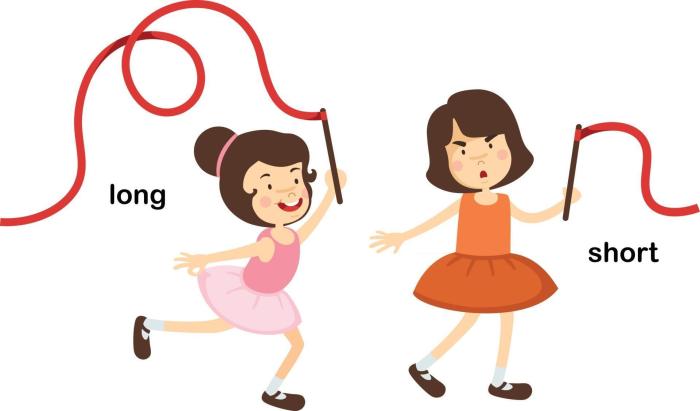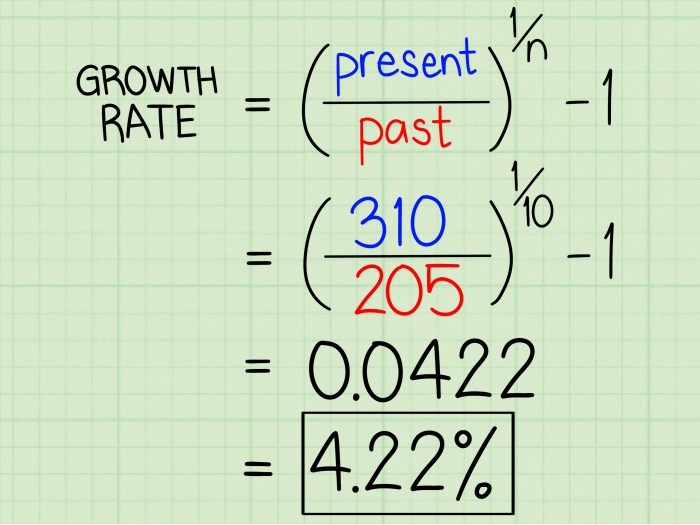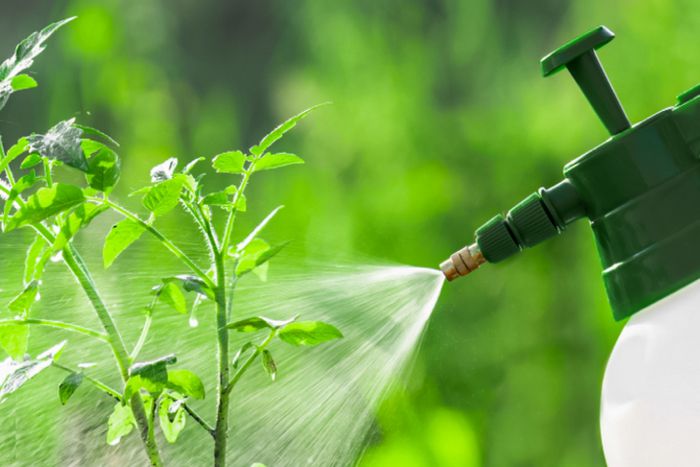How long does a water heater last? This isn’t just a question of appliance longevity; it’s about understanding your home’s plumbing needs and budgeting for potential replacements. From tank to tankless models, water hardness to installation, various factors influence a water heater’s lifespan. This comprehensive guide explores the key elements affecting your water heater’s life expectancy, offering insights into maintenance, troubleshooting, and ultimately, making informed decisions about replacement.
We’ll delve into the specific factors that determine a water heater’s lifespan, comparing tank and tankless models, and analyzing the impact of water quality and installation practices. Understanding these details helps homeowners plan for future expenses and maintain their homes effectively.
Factors Affecting Water Heater Lifespan

A water heater, a vital appliance in any home, plays a crucial role in daily life. Understanding its lifespan and the factors influencing it allows for informed decisions regarding replacement and maintenance. A longer-lasting water heater translates to lower energy costs and less frequent replacements, ultimately saving money and reducing environmental impact.The longevity of a water heater is not solely determined by its age but rather by a complex interplay of factors, including the type of water heater, water quality, installation practices, and maintenance habits.
Different types of water heaters have varying lifespans and maintenance needs, making informed choices essential for maximizing efficiency and minimizing replacement costs.
Water Heater Type and Lifespan
Different water heater types have distinct lifespans, influenced by their operational mechanisms and materials used. Tank-style water heaters, which store heated water, typically last 8-12 years with proper maintenance. Tankless water heaters, on the other hand, have a longer lifespan, often lasting 10-15 years or more, due to their continuous heating and lower wear and tear on components.
Factors like the quality of materials and the frequency of use can significantly impact the lifespan of both types.
Impact of Water Hardness and Quality
Water hardness significantly impacts a water heater’s lifespan. Hard water, containing high levels of minerals like calcium and magnesium, can accumulate as scale within the water heater tank. This scale buildup reduces the efficiency of the heating element, leading to increased energy consumption and premature wear. Softened water or filtration systems can mitigate this issue, leading to a longer lifespan for the water heater.
Water quality in general, including the presence of corrosive substances, also impacts the durability of the tank and internal components.
Installation Practices and Maintenance
Proper installation is crucial for a water heater’s longevity. Correct venting ensures proper operation and prevents potential safety hazards. Electrical connections must adhere to safety codes to prevent overheating or short circuits. Improper venting or electrical connections can lead to premature failure and a significantly shortened lifespan. Regular maintenance, such as checking the anode rod and draining sediment, is also vital for preventing corrosion and buildup, extending the overall life of the water heater.
Common Maintenance Practices
Routine maintenance practices play a critical role in maximizing a water heater’s lifespan. Regular checks for sediment buildup and corrosion are essential. Replacing the anode rod periodically prevents corrosion of the tank. Draining sediment can prevent premature heating element failure. These simple maintenance steps, often performed annually, can extend the life of the water heater considerably.
Conversely, neglecting maintenance can lead to rapid deterioration and a much shorter lifespan.
Water heaters, like a good pair of work boots, can last a surprisingly long time – sometimes 8 to 12 years! But, if you’re looking to upgrade your kitchen’s ambiance, exploring the best under cabinet lighting options can be a worthwhile investment. Best under cabinet lighting can dramatically change the feel of your kitchen, making it feel more modern and inviting.
Ultimately, choosing the right water heater depends on your needs and budget, and considering how long they typically last is crucial.
Comparison of Lifespan Across Water Heater Types
| Water Heater Type | Typical Lifespan (Years) | Factors Affecting Lifespan |
|---|---|---|
| Tank Water Heater | 8-12 | Water hardness, maintenance, installation |
| Tankless Water Heater | 10-15+ | Water quality, installation, maintenance |
Note that these are estimates and actual lifespan can vary based on individual factors. For instance, a tank water heater in an area with extremely hard water might have a shorter lifespan compared to one in an area with softer water. Likewise, a tankless water heater used for frequent high-volume hot water demand might experience accelerated wear.
Typical Lifespan Ranges
Knowing how long your water heater will last is crucial for budgeting and planning home maintenance. A failing water heater can lead to inconvenient cold showers, potential water damage, and costly repairs. Understanding the typical lifespan, along with factors influencing its longevity, allows for proactive maintenance and informed decisions about replacement.
Typical Lifespan of Water Heaters
The lifespan of a water heater varies considerably, depending on the type, installation quality, and maintenance practices. A well-maintained tank water heater can last 8-12 years, while tankless water heaters can last 15-20 years or even longer with proper care.
Average Lifespan by Type
Different types of water heaters have varying lifespans. Factors like the quality of materials, the complexity of the design, and the frequency of use all play a role.
Water heaters, much like my recent attempt at decluttering, have a lifespan. While some can last a decade or more, it really depends on usage and maintenance. I recently dove into the world of organizing, trying the recluttering trend i tried the recluttering trend , and found it surprisingly rewarding. But back to the water heater – proper maintenance and regular checks can significantly extend its useful life, saving you money in the long run.
| Water Heater Type | Average Lifespan (Years) |
|---|---|
| Tank Water Heaters | 8-12 |
| Tankless Water Heaters | 15-20+ |
| Solar Water Heaters | 10-15+ |
Comparison with Other Appliances
Comparing the lifespan of a water heater to other home appliances helps put it in perspective. A refrigerator typically lasts 10-15 years, while a dishwasher can last 8-12 years. A water heater’s lifespan is generally comparable to these appliances, though the tankless models can significantly outlast the others.
Calculating Replacement Cost
Estimating the potential replacement cost is important for budgeting. If a tank water heater is expected to last 10 years, the average cost of replacement can be roughly calculated by dividing the total cost of a new unit by 10. This allows for a clearer picture of the anticipated expenses over time.
Repair Costs vs. Replacement Costs
Repairing a malfunctioning water heater can be costly, and in some cases, it may be more economical to replace it, especially when considering the age and potential for further repairs. The table below illustrates the estimated repair costs compared to replacement costs over different lifespan ranges.
| Lifespan Range (Years) | Estimated Repair Costs | Estimated Replacement Cost |
|---|---|---|
| 0-5 | $200 – $500 | $1000 – $2000+ |
| 5-8 | $300 – $800 | $1000 – $2000+ |
| 8-12 | $400 – $1000 | $1000 – $2000+ |
| 12+ | $500+ | $1000 – $2500+ |
Note: These are estimates, and actual costs can vary significantly based on the specific model, repair issues, and labor rates.
Signs of Water Heater Deterioration
Knowing when your water heater is nearing the end of its lifespan is crucial. Ignoring warning signs can lead to costly repairs or even a complete replacement, impacting your household budget and potentially causing inconvenience. This section will Artikel the common symptoms of water heater problems and how to recognize them early on.Understanding these signs allows for proactive maintenance and potential troubleshooting, preventing major issues and extending the life of your water heater.
Water heaters, like a good night’s sleep, need proper maintenance to last. While they can often last a decade or more, it’s worth researching the best places to buy bedding if you’re looking for long-term comfort and quality. Best places to buy bedding should offer comparable longevity to your water heater, considering the quality of materials.
Ultimately, a well-maintained water heater should provide reliable hot water for years to come, similar to a comfortable bed.
Early detection and prompt action can save you significant money and stress in the long run.
Common Warning Signs of Deterioration
Recognizing the early signs of water heater problems is essential for preventing major repairs or replacements. These signs can range from subtle indicators to more obvious symptoms. The following list details potential issues and their implications.
- Reduced Hot Water Output: If your hot water supply is noticeably less than usual, especially during peak demand (e.g., multiple showers or dishwashing), it could indicate a buildup of sediment or a failing heating element. This reduction might start subtly, gradually diminishing over time.
- Low Water Pressure: A significant drop in water pressure throughout the house, not just the hot water, can be a symptom of a leak within the water heater tank. This is often associated with a slow, gradual leak, sometimes not readily visible.
- Leaks: A visible leak, dripping or a steady flow of water around the water heater, is a clear sign of deterioration. This could be from a cracked tank, a faulty valve, or a worn-out connection. This is a serious issue requiring immediate attention.
- Sediment Buildup: The presence of sediment buildup in the water heater tank, often noticeable in the drain valve or visible in the tank itself, can be a significant problem. Over time, sediment reduces the efficiency of the heating element and can damage the tank.
- Rusty or Corroded Water Heater: Rust or corrosion on the exterior or within the tank suggests internal deterioration. This can be a sign of a leak or a weakened tank, increasing the risk of failure.
- Strange Noises: Unusual noises, such as banging, rumbling, or hissing from the water heater, might indicate a problem with the heating elements, sediment buildup, or even a cracked tank. This can be a sign of issues developing, requiring prompt inspection.
- Water Temperature Fluctuations: Unpredictable hot water temperature, alternating between scalding hot and lukewarm, suggests problems with the thermostat or a failing heating element.
Troubleshooting Common Issues
Early detection of water heater problems can often lead to simple solutions. The following steps highlight some common troubleshooting methods to avoid unnecessary replacement.
- Sediment Buildup: Regularly draining and flushing the water heater can help remove sediment buildup. This simple procedure can extend the life of your water heater.
- Leaks: If a leak is detected, immediately shut off the water supply to the water heater and contact a qualified plumber to identify and repair the leak. A small leak can escalate quickly, potentially causing significant damage.
- Low Water Pressure: Inspect the connections and pipes around the water heater for any signs of leaks. Low water pressure could also be a problem in the main water supply line, which might need a plumber’s attention.
Potential Water Heater Problems Leading to Premature Failure
A proactive approach to maintaining your water heater can significantly reduce the risk of premature failure. Here’s a checklist of potential issues.
- Corrosion: Internal corrosion from mineral buildup or poor water quality can significantly shorten the water heater’s lifespan.
- Overheating: Overheating, due to sediment buildup or faulty thermostat settings, can damage the heating elements and the tank.
- Inadequate Insulation: Poor insulation can lead to heat loss, increasing energy consumption and potentially reducing the lifespan of the heater.
- Mineral Deposits: Mineral deposits can reduce the efficiency of the heating element and shorten the lifespan of the entire water heater.
Maintenance and Prevention Strategies
Extending the lifespan of your water heater is not just about knowing its typical lifespan; it’s about proactive maintenance. Regular care can prevent costly repairs and ensure consistent hot water throughout the years. By understanding the critical maintenance tasks and performing them diligently, you can significantly increase the lifespan of your water heater.Proper maintenance is crucial for preventing premature wear and tear on the various components of your water heater.
Ignoring regular maintenance can lead to issues like mineral buildup, leaks, and ultimately, costly replacements. Proactive steps like flushing and sediment removal can save you significant expenses in the long run.
Regular Flushing and Sediment Removal, How long does a water heater last
Regular flushing and sediment removal are essential for maintaining optimal water heater performance and extending its lifespan. Sediment buildup can significantly reduce the efficiency of your water heater, potentially leading to higher energy bills and reduced hot water output. By removing sediment, you maintain the efficiency of the heating elements and the overall system.
- Sediment buildup in a water heater can cause significant problems. It restricts heat transfer, which reduces efficiency and increases energy consumption. Over time, this can lead to overheating issues and potential component failures.
- Flushing removes accumulated sediment and debris, restoring the efficiency of the heating elements. This process also helps prevent the formation of scale, which further hinders heat transfer.
Checking for Leaks and Other Issues
Regularly inspecting your water heater for leaks and other problems is a crucial preventative maintenance step. Early detection of potential issues can prevent significant damage and costly repairs. Thorough visual inspections are essential in identifying problems before they escalate.
- Inspect the water heater’s exterior for any signs of leaks, such as water stains, dampness, or puddles. Pay close attention to the connections between pipes and the water heater.
- Listen for unusual noises, such as dripping or hissing sounds. These noises might indicate a leak or a malfunctioning component. A persistent or increasing sound warrants immediate attention.
- Check the temperature and pressure gauges. If the readings are significantly different from the expected values, this could indicate a problem that needs immediate attention.
DIY Maintenance Tasks
Homeowners can perform several DIY maintenance tasks to keep their water heaters functioning efficiently. These tasks, if performed regularly, can prevent more significant and costly repairs.
- Regularly checking the temperature and pressure gauges ensures that your water heater operates within the optimal parameters.
- Inspecting for leaks is essential to prevent potential damage and water waste.
- Using appropriate tools for the job, such as screwdrivers and wrenches, will ensure the safety and efficiency of the repair process.
Step-by-Step Water Heater Maintenance Guide
| Task | Step-by-Step Instructions |
|---|---|
| Flushing | 1. Turn off the water supply to the water heater. 2. Open the drain valve at the bottom of the water heater. 3. Allow the water to drain completely. 4. Close the drain valve and turn the water supply back on. 5. Check for leaks. |
| Sediment Removal | 1. Turn off the water supply to the water heater. 2. Open the drain valve. 3. Add a water heater flush solution according to the manufacturer’s instructions. 4. Allow the solution to circulate for the recommended time. 5. Drain the water heater completely and flush with clean water until the water runs clear. |
| Leak Detection | 1. Inspect the water heater for any signs of leakage (water stains, dampness, etc.). 2. Listen for unusual noises (dripping, hissing). 3. Check the connections between pipes and the water heater for leaks. |
Influence of Home Environment on Lifespan: How Long Does A Water Heater Last

Your water heater, a vital appliance in your home, is susceptible to the environmental conditions it endures. Understanding how temperature fluctuations, water quality, and usage patterns affect its lifespan empowers you to make informed choices about its maintenance and replacement. This knowledge can significantly extend the life of your water heater and save you money in the long run.Home environments exert a considerable influence on the longevity of a water heater.
Factors such as temperature variations, water hardness, and frequency of use can all contribute to accelerated wear and tear, shortening its lifespan. Conversely, a stable environment with proper maintenance can extend the life of your water heater significantly.
Temperature Fluctuations and Use Patterns
Temperature variations in your home can strain the water heater’s components. Frequent temperature changes cause the tank to expand and contract, putting stress on the tank and potentially leading to leaks or premature failure. Similarly, extreme temperatures, whether hot or cold, can affect the efficiency of the heating element and the overall lifespan of the water heater. Consistent use, such as in households with multiple occupants or those who frequently use hot water for various activities, can lead to more rapid wear and tear, as the heater is constantly cycling on and off.
Conversely, infrequent use can lead to mineral buildup and corrosion. A balanced use pattern, along with proper maintenance, can significantly extend the lifespan of the appliance.
Impact of Hard Water
Hard water, characterized by a high mineral content, is particularly detrimental to water heaters. Minerals like calcium and magnesium can accumulate inside the tank, forming scale. This scale buildup reduces the efficiency of the heating element, causing it to work harder and leading to increased energy consumption. Moreover, the scale can damage the heating element, potentially causing premature failure.
Over time, the scale buildup can also hinder the water heater’s ability to maintain optimal temperature and pressure. Hard water can also contribute to corrosion in the tank, pipes, and other internal components.
Home Environment Examples
Different home environments influence water heater lifespan. A household with frequent use, like a large family using hot water for multiple showers and laundry, will likely experience a shorter lifespan compared to a household with infrequent use. Homes in regions with significant temperature variations will also experience more stress on the water heater. Similarly, homes with hard water will experience more rapid mineral buildup, negatively impacting the water heater’s performance and lifespan.
Role of Home Climate
The home’s climate plays a significant role in the longevity of a water heater. Areas with extreme temperature variations will experience more frequent thermal expansion and contraction of the water heater tank, leading to increased wear and tear. Homes located in areas with high humidity might also experience issues related to corrosion. The geographic location and specific climate conditions of a house directly affect the lifespan of a water heater.
Influence Factors Table
| Factor | Description | Impact on Lifespan |
|---|---|---|
| Temperature Fluctuations | Frequent changes in home temperature | Increased stress on tank, potential leaks, reduced efficiency |
| Water Hardness | High mineral content in water | Scale buildup, reduced efficiency, potential damage to heating element |
| Use Patterns | Frequency of hot water use | Increased wear and tear with frequent use, mineral buildup with infrequent use |
| Home Climate | Temperature variations, humidity | Increased thermal stress, potential corrosion |
Replacement Considerations
Deciding whether to repair or replace your water heater is a crucial home maintenance step. This involves careful evaluation of several factors, from the age and condition of your current unit to the potential energy savings and long-term costs of a new model. Understanding these factors empowers you to make an informed decision that best suits your needs and budget.The lifespan of a water heater can vary significantly.
While some units may function reliably for over a decade, others might require replacement sooner due to issues like leaks, inefficient heating, or outdated technology. Assessing these factors, along with the cost-effectiveness of repairs versus replacement, is paramount in making a well-reasoned choice.
Factors Influencing Replacement Decisions
Determining whether to repair or replace a water heater depends on various factors. Understanding these factors allows for a more informed decision-making process. The age of the unit, the frequency of repairs, and the potential for energy savings are key considerations. Also, the cost of repairs versus the cost of a new unit is a critical aspect to evaluate.
Different Water Heater Models and Features
Various water heater models cater to diverse needs and budgets. Understanding the features and specifications of these models is essential for selecting the right one. Electric water heaters are simple and affordable, but their energy consumption can be higher than other types. Gas water heaters often provide higher heating capacity, but their cost can be higher, and they require venting.
Tankless water heaters offer continuous hot water, but they typically cost more and have higher installation requirements.
Energy Efficiency Ratings and Long-Term Costs
Energy efficiency ratings significantly impact long-term water heating costs. Higher efficiency ratings translate to lower energy bills over time. For example, a water heater with an Energy Star rating generally consumes less energy compared to a non-Energy Star model. This translates to substantial savings in utility bills, making energy efficiency a critical factor when considering a replacement.
Comparing Costs of Different Models
The cost of a new water heater varies considerably based on the type, features, and efficiency rating. A simple electric water heater might have a lower upfront cost but higher running costs due to energy consumption. A more sophisticated gas water heater, while having a higher initial investment, might have lower running costs in the long run, depending on energy prices.
Tankless water heaters, despite their higher initial cost, often offer long-term cost savings due to their continuous hot water supply and high efficiency.
Selecting a New Water Heater Based on Needs and Budget
Choosing a new water heater should align with individual needs and budget. Factors like water usage, desired temperature, and available space should be considered. The initial cost, ongoing energy costs, and potential future maintenance needs should also be weighed. For instance, a family with high water usage might benefit from a larger capacity tank or a tankless system.
Someone on a tighter budget might opt for a less expensive, but still energy-efficient model. A careful assessment of these factors ensures a selection that best suits the specific needs of the homeowner.
Last Recap
In conclusion, the lifespan of your water heater depends on a complex interplay of factors. From choosing the right model to performing regular maintenance, proactive steps can significantly extend its life. This guide provided a detailed overview of the key elements influencing water heater longevity. Armed with this knowledge, you can make informed decisions about maintenance and replacement, ultimately saving money and ensuring a reliable hot water supply for your home.






